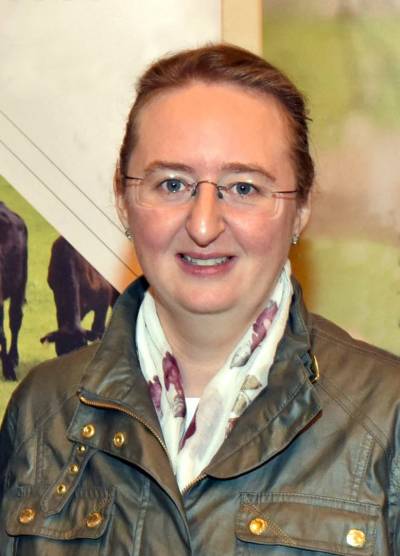
Farmers need to concentrate on reducing gross farm emissions to reduce their carbon footprint as well as support the national effort to meet net zero.
This is the message from Professor Elizabeth Magowan, Director of Sustainable Agri-Food Sciences Division in the Agri-Food and Biosciences Institute, Northern Ireland.
Prof Magowan says if farmers want to play their role in meeting the UK target of net zero by 2050, as measured and reported by the UK’s National Inventory, they need to reduce the total amount of methane and nitrous oxide emissions being produced on their farm.
She says this may require farmers to ‘scratch below the surface’ of their carbon audits.
“The devil is in the detail; while reducing the overall carbon footprint on a per kilo of milk or meat basis is essential, this must be achieved in line with a reduction in gross emissions from the farm as well to support inventory goals.”
She says most carbon audits should be able to provide this information.
“There is a significant risk that by solely focussing on ‘carbon intensity’ from carbon calculators, farmers could consider it possible to increase cattle numbers. But, by doing so they would likely increase the gross emissions of the farm.
“While some farms may be better suited to do this, if everyone did this the overall total emission from cattle farming would very likely go up,” she warns.
Prof Magowan will be talking at the British Cattle Breeders’ Conference on 24 January where she will aim to dispel the confusion around agricultural emissions. She will explain the differences and commonalities between UK National Inventory Accounting and Carbon Accounting on a farm-by-farm basis.
She will also discuss what steps farmers can take to improve efficiencies and simultaneously reduce farm emissions and sequester carbon.
For example, she says reducing the UK’s average calving age from 29 months to 24 months would create a significant saving.
Prof Magowan believes looking at land use based on soil type and climate will be key to ensuring the right balance is struck between ecosystems and food security.
“It is not going to be a one-size-fits-all approach. We will have a real mix of farming practices going forward,” she predicts.
She adds: “There’s a huge amount of work for the cattle industry to undertake; adoptation of current practices is required at pace in the next 6-7 years, if not sooner, to meet carbon targets for 27/30.”
She says significant scientific work is also required to provide farmers with solutions to meet targets beyond 2030.
Do not miss Prof Magowan talk. Register to attend the conference here